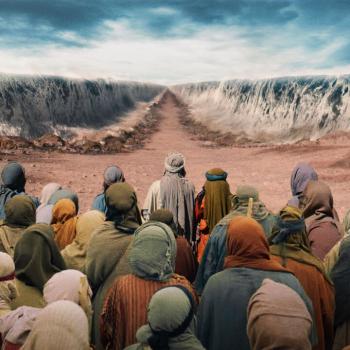If God knows all that is going to happen, can I be free? Saying “No” creates considerable difficulties about our understanding of human nature. But if we insist on human freedom in such a way that excludes God’s foreknowledge, we face equally considerable difficulties, this time about God’s nature.
Ryan Byerly has written a dense and difficult book proposing a novel way to revolve the dilemma, The Mechanics of Divine Foreknowledge and Providence.
Byerly begins by arguing that foreknowledge is not really the issue. Infallible divine foreknowledge is only a threat to human freedom if that foreknowledge is thought to entail causal determinism. It is often assumed that it does, but Byerly book is an effort to those that this is not the case and that there are alternative descriptions of foreknowledge that are consistent with classical theism but avoid the problem of causal determination.
His theory is a “time-ordering one,” and he summarizes his “story” this way: “God has infallible knowledge by virtue of his self-knowledge, his knowledge of the times, and his infallibly competent deductive powers. God begins with the knowledge of every possible time. God then wills for some of these times to be ordered in a particular way so as to constitute the history of the actual world. By virtue of his self-awareness he knows that he wills this. His willing that the times be ordered in such-and-such a way entails that the times are ordered in such-and-such a way, since he is omnipotent. And God knows that he is omnipotent, too, so he deduces that the times are ordered in such-and-such a way. Finally, the times being ordered in such-and-such a way entails everything which occurs in the history of the world, including everything which occurs at every future time. Since God knows this, too, he can competently deduce what will happen at every time, since his evidence entails everything that happens at every time. Since knowing infallible everything that happens suffices for knowing infallibly every truth, God is classically omniscient” (76).
What are “times”? Byerly argues that “what makes a time the particular time that it is has to do only with propositions it includes, which don’t say anything about that time’s relation to other times” (77). These times are set in temporal relations to one another in “earlier-than relations” to form a series of times, and God is the one who determines the order.
To say that God orders the times in this way does not, Byerly argues, entail causal determinism. In his account, God causes “one time’s being temporally related to another. It was never said that God causes events that obtain at times . . . . The only way I could see for someone to argue that my story implies that God is really causally related to events would be if she argued that times’ being temporally related to one another cause the events which occur at those times. . . . But, it it quite implausible to maintain that one time’s being earlier than another causes the events which take place at those times to obtain” (90). Thus, a time-ordering account, because it rejects causal determinism while maintaining that God is in control of the world, is able to harmonize foreknowledge and freedom.
Several things impress here: First, the ingenuity and clarity of the argument; second, the fact that Byerly and other analytic philosophers are engaging religious topics seriously. Even those (like me) who prefer to work in a different idiom, and those are not entirely persuaded, can be grateful for the rigor of their contributions.















